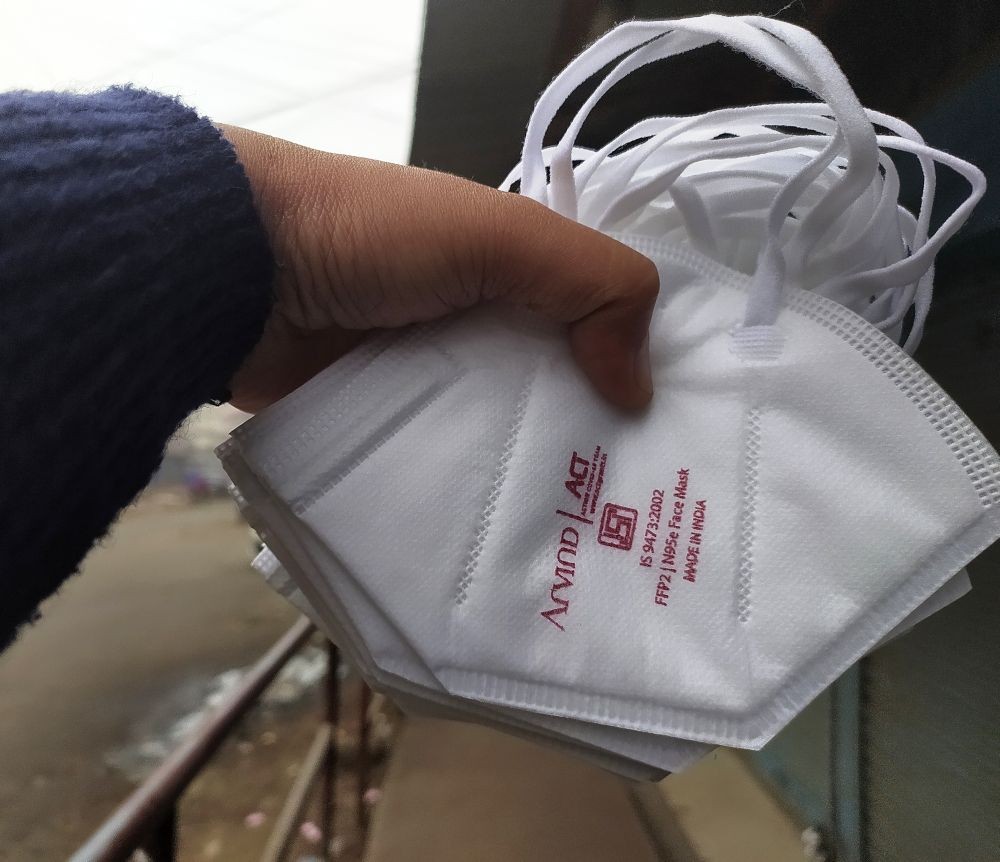
Masks work best when everyone wears one
Atono Tsükrü Kense
Kohima | February 7
Wearing of mask can be uncomfortable, besides impairing facial recognition. But with the COVID-19 pandemic, it has become more a norm than an imposition.
The World Health Organisation (WHO) and the US Centers for Disease Control and Prevention (CDC) highly recommends that masks should be used as part of the comprehensive strategy and measures to suppress transmission and save lives— “when you wear mask, you protect others as well as yourself. Masks work best when everyone wears one.”
However, of late, people have become unworried and disregarding COVID appropriate behaviours. Many people have stopped wearing masks, flouting social distancing rules and other safety practices at public events and marketplaces.
The coming of the vaccine may have perhaps emboldened people to care less if a comment on the street from an ‘unmasked’ gentleman was any measure. “Hey sister, we don’t need to wear mask anymore as we have the vaccine now,” the man commented as this journalist, with mask on, was at a neighbourhood grocery.
Science, on the other hand, asserts it is wiser to wear masks, based on solid medical facts.
Speaking to The Morung Express, Principal Director, Health & Family Welfare, Dr Kevichüsa Medikhrü strongly emphasised that, “It is still important to wear mask as it protects one from any viral disease, including COVID-19.”
Inoculation has started but Dr Medikhrü warned against complacency, stating, “We are in the initial stage, immunity develops only after some days. Vaccine is here but it doesn’t mean that you are protected yet. You would still get infected and can infect others.”
Wearing of masks has not only prevented spread of COVID-19. According to Dr Medikhrü, a reduction in other respiratory infections like influenza has also been observed.
As to what type of masks works better, he said that all types of mask made with breathable materials are as effective as those used in the hospitals. “Even the handmade masks can keep you safe and we are very happy to see that our people have started to make masks, which has also become a source of livelihood for many,” he said.
Pandemic not over
“The pandemic is not yet over. We are still in the middle of the pandemic,” reminded Dr Nyanthung Kikon, State Nodal Officer, IDSP, H&FW.
“People have been very complacent, they are either not wearing mask or wearing improperly thinking the pandemic is over,” said Dr Kikon.
“Every responsible person in the society should come together and impart the importance and relevance of wearing mask, washing hands, avoiding close contact settings/crowded places and avoiding confined places without enough ventilation. These things still should go on.”
He reiterated, “We have to continue to follow COVID-19 appropriate behaviours” as even if one is vaccinated, it takes time for the immunity to develop. Further, he said, “Even if we are vaccinated, we may still get infected and though we may not exhibit serious signs and symptoms, we can still infect others.”
For Seyievituo Rio, a young photographer, who religiously wears mask wherever he goes said, “Wearing mask has become a part of my everyday routine to keep myself and those around me safe. The risk is infecting others not knowing that I might be infected.”
He strongly felt that wearing mask is keeping most people safe from being infected.
An educator, Dietholhouto Sesa said that wearing mask is not only keeping him safe from being infected but also from dust, pollution and other pathogens. “If it had not been for wearing mask, there have been instances where I could be infected due to the constant physical contact and interactions with different people,” he added.
However, not all are convinced. 48 year-old Neihu (name changed), who seldom wears mask, regards mask as unnecessary. He held, “Ever since the pandemic happened, I haven’t come across anyone close or those near and dear to me getting infected by the virus. Since then, I don’t consider it as a threat and find it unnecessary to wear mask.”
“If I am to be infected I will be infected with or without wearing mask,” said John (name changed), who did not seem concerned about the risk of either spreading or being infected by the virus. “The risk of COVID-19 virus has been over-hyped, creating fear psychosis among the masses,” was his reasoning.
Here are the basics of how to wear a mask:
• Clean your hands before you put your mask on, as well as before and after you take it off, and after you touch it at any time.
• Make sure it covers your nose, mouth and chin.
• When you take off a mask, store it in a clean plastic bag. Wash the mask everyday if it is a fabric mask, or dispose it in a trash bin if it is a surgical mask.
• Don’t use masks with valves.






